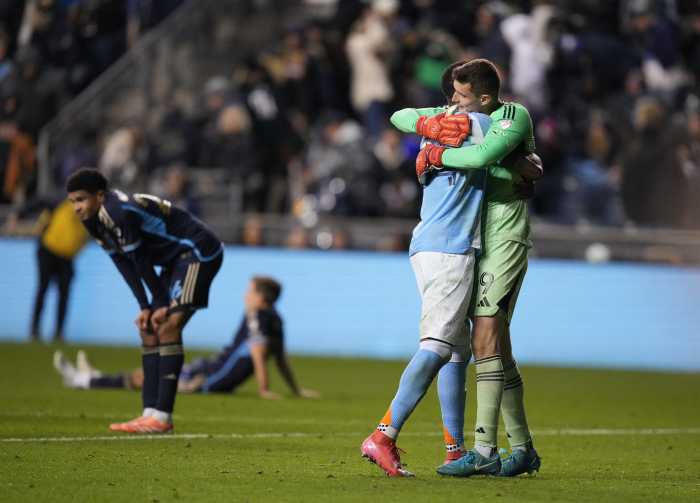So it is to be Fernando Ferrer who will carry the Democratic torch into November’s contest with incumbent Republican Michael Bloomberg. In the 2001 campaign, I found much to admire in Ferrer’s willingness to make the case against eight years of racially divisive stewardship by Rudolph Giuliani, in his central campaign theme that New York had been rent asunder into “two cities.” Compared to his three primary opponents seeking to cast themselves as Rudy Lite, the then Bronx borough president seemed to represent what Howard Dean several years later would famously dub the Democratic wing of the Democratic Party.
Ferrer is also strong on gay issues—having endorsed same-sex marriage nearly a decade ago and criticizing Bloomberg throughout this year’s campaign for his appeal of February’s pro-gay marriage ruling and his veto of several key pieces of legislation of strong interest to our community.
But I have been disappointed with Ferrer’s performance in 2005. After a glaring misstep that raised troubling questions about his candor—his lame effort in front of a gathering of cops to backtrack from his earlier strong critique of police conduct in the 1999 shooting death of African immigrant Amadou Diallo in the Bronx—he played an overly cautious primary front runner’s hand unsuited to the daunting task of trying to unseat a self-financed billionaire mayor with pretty decent polling numbers.
Unfortunately, Ferrer’s acceptance speech Tuesday evening offered unconvincing evidence that he is now ready for his new task. To be sure, he showed more fire in the belly that earlier this year. But the lines of attack he articulated seemed to lack the compelling, overarching themes that will be needed to do the job. The one rhetorical device Ferrer employed was “a new city is rising,” which struck me as an awkward reference to September 11, especially since he offered no specific critique of Bloomberg either for his handling of security in the face of potential terrorist attacks or his success, or lack thereof, in moving ground zero’s reconstruction forward.
Oddly, it was Anthony Weiner, whose talk of a tax cut suggested that he might not pay sufficient attention to funding needed social services, who spoke most convincingly this year about the social injustices facing too many of our follow citizens. His condemnation of the “shame” of thousands and thousands of children having to find some of their meals in soup kitchens has the sort of visceral appeal on which Democratic candidates usually rely.
Whether in the years to come, Weiner’s surprising decision to bow out of a runoff he might well have been entitled to will be remembered as a gallant gesture of party unity that continues to pay dividends or as a rash move that threw away his main chance cannot today be guessed at with any degree of certainty. One can only hope that the congressman will work to build his posture in the Democratic Party. He is a comer.
As too are Scott Stringer, the presumptive borough president of Manhattan, and Rosie Mendez, the lesbian tenant activist who will succeed Margarita Lopez on the City Council.
And watch too for more from Brian Ellner, who captured the imaginations—and likely the hearts—of many gay and lesbian voters with a high profile proclamation of gay pride in his borough president race. His graceful concession speech leaves wide room for his future in public life.
gaycitynews.com













